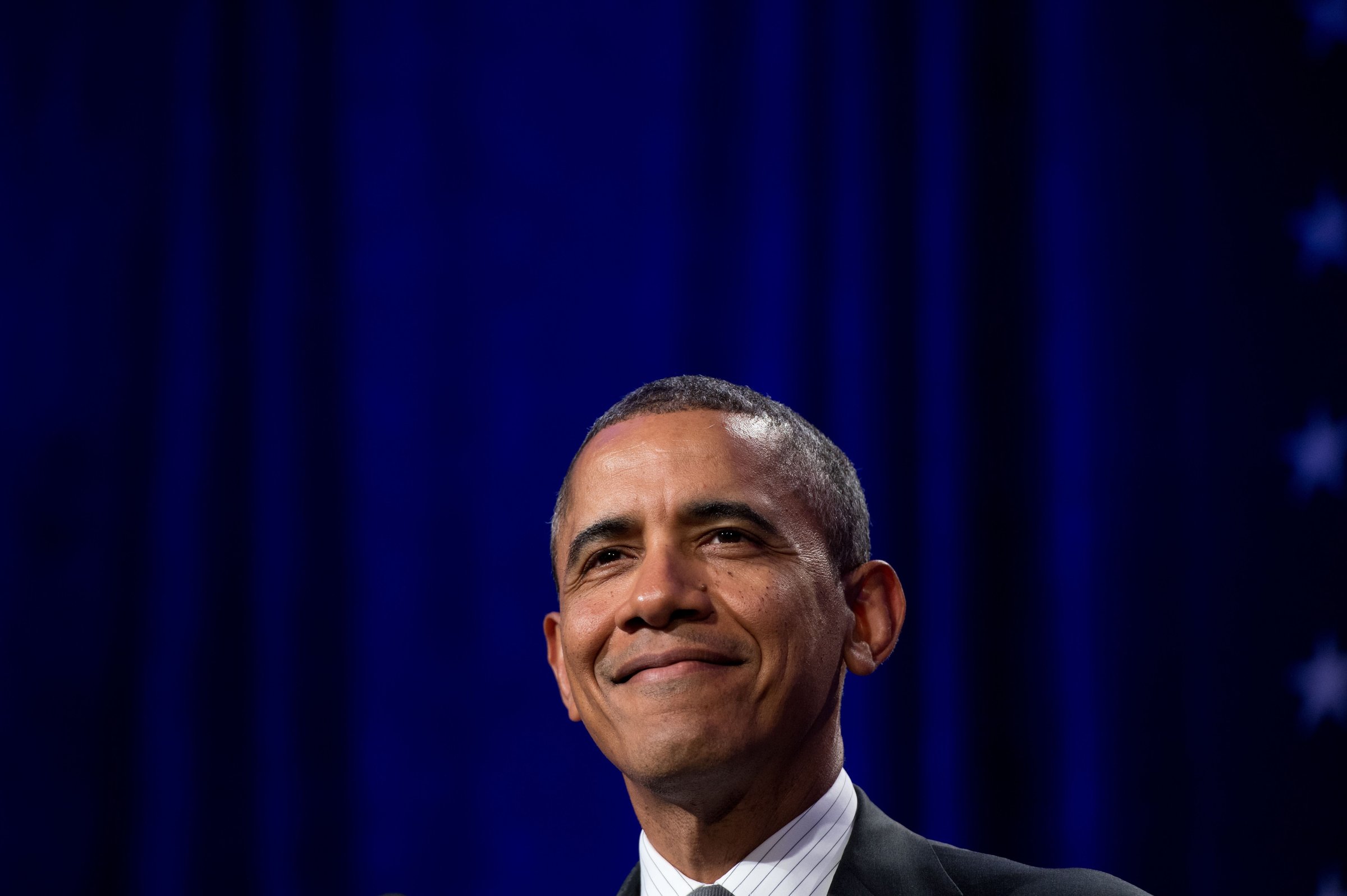
If budgets are political documents, President Barack Obama’s latest offering is something akin to a partisan opus.
That doesn’t mean it’s heading anywhere. Democrats in the Senate will not proceed with a budget resolution this year, and the House, if it acts at all, will almost certainly hew to a GOP vision. Indeed, lawmakers have already approved spending figures for the fiscal year starting Oct. 1. Instead with Washington squarely focused on this fall’s midterm elections, Obama’s $3.9 trillion budget represents a laundry-list of policy proposals designed to help Democrats hold the Senate and pick up seats in the House.
Obama essentially conceded the point last month, when the White House announced he is dropping calls for an unpopular, but cost-saving measure to change the way inflation is calculated for the purposes of entitlement programs like Social Security. That compromise was intended to be a good-faith offer to Republicans as part of a grand bargain, but gridlock and declining deficits have placed the national debt on the backburner.
The new budget, by contrast, is chock full of wedge issues designed to exploit the divide between Democrats and Republicans, and it has been released under Obama’s populist State of the Union theme “Opportunity for all,” which the president hopes to make a rallying cry for Democrats this year. It includes tax breaks for many low- and middle-income Americans paid for by the closing of loopholes used by the nation’s wealthiest and supported by many Republicans, including the carried interest exemption. It would also institute the so-called “Buffett Rule” by instituting a minimum tax rate of 30 percent on people earning more than $1 million a year, ensuring they pay an effective tax rate above those of middle-class Americans.
The budget also includes additional funding to improve background checks for gun purchases and money to help state and local police forces train for active shooter incidents in the wake of Sandy Hook. It adds $1 billion for a “Climate Resilience Fund” to help research and prepare for the effects of climate change. It would even increase federal defense spending by $28 billion over the caps set in the 2013 budget agreement.
Other proposals include a “race to the top”-style program to incentivize states and localities to embrace energy efficiency legislation. There’s additional funding for job training and infrastructure that Obama has long requested but has never been able to get through Congress, and a proposal to auto-enroll Americans in retirement savings accounts. The budget also restates Obama’s calls for existing priorities like continuing the Affordable Care Act and passing comprehensive immigration reform. It repeats his call from last year’s budget to extend pre-k education for more children, paid for partly by higher taxes on tobacco products.
The Democratic wish-list already has Republicans worried. Privately Republicans are pressing the House to avoid proceeding with a budget this year, as the Senate is doing, so as not to play into the White House’s hand. The proposals, meanwhile, are carefully calibrated to be individually popular, allowing Democrats with what to run on this fall, while the guaranteed dead-end ensures they won’t have to take a tough vote that Republicans could use to resurrect fiscal issues.
“After years of fiscal and economic mismanagement, the president has offered perhaps his most irresponsible budget yet,” Speaker of the House John Boehner said in a statement. “American families looking for jobs and opportunity will find only more government in this plan.”
The administration fact sheet on the budget is below:
[scribd id=210531086 key=key-2agu28dewjmg0y2t26k0 mode=scroll]
More Must-Reads from TIME
- Donald Trump Is TIME's 2024 Person of the Year
- Why We Chose Trump as Person of the Year
- Is Intermittent Fasting Good or Bad for You?
- The 100 Must-Read Books of 2024
- The 20 Best Christmas TV Episodes
- Column: If Optimism Feels Ridiculous Now, Try Hope
- The Future of Climate Action Is Trade Policy
- Merle Bombardieri Is Helping People Make the Baby Decision
Contact us at letters@time.com